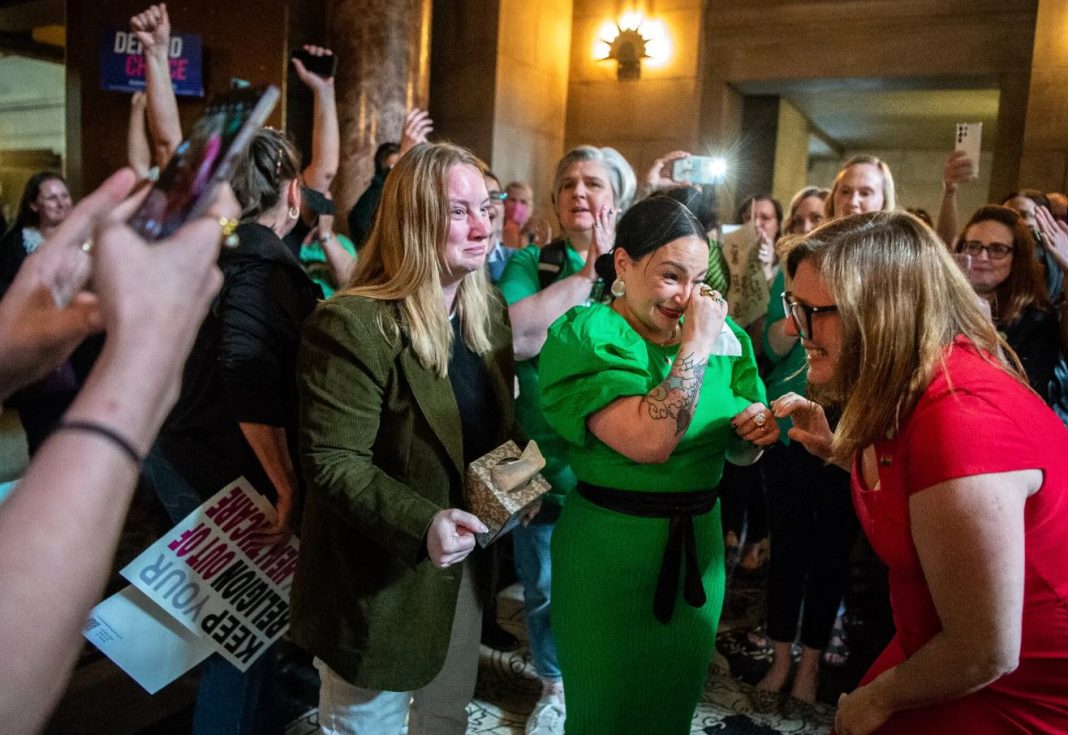On Thursday, conservative states South Carolina and Nebraska, which have been trying to outlaw abortion, both failed to pass new measures restricting the practise, protecting broad access to abortion and giving abortion rights supporters unexpected victory.
A strict ban that would outlaw the procedure before most women know they are pregnant failed to advance in the Nebraska legislature, making it unlikely that similar legislation will be considered during the remainder of this year’s legislative session.
Two senators did not cast ballots, preventing the measure from receiving the necessary 33 votes for passage. In an interview following the vote, Republican governor and bill supporter Jim Pillen stated it was “unacceptable for senators to be present not voting on such a momentous vote.” Mr. Pillen, who called himself a “steadfast defender of life,” expressed “profound disappointment” at the verdict.
A measure that would have effectively outlawed abortion in South Carolina was just shot down in the state senate. The House had previously approved the law, but the five women in the Senate (three of whom are Republicans) were strongly opposed to it.
Having Republican governors sign the legislation into law would have been a huge deal for the people living in those states. Abortions are legal in South Carolina and Nebraska up until around 22 weeks.
Having Republican governors sign the legislation into law would have been a huge deal for the people living in those states. Abortions are legal in South Carolina and Nebraska up until around 22 weeks.
According to Andi Curry Grubb, executive director of Planned Parenthood Advocates of Nebraska, “Nebraska politicians today voted to keep private health care decisions where they belong — in the exam room between a doctor and a patient.”
Both states were on track to follow other Republican-led states in imposing harsh restrictions on abortion. At present, 14 states have laws on the books that effectively outlaw abortion, with some making exceptions in cases of rape or imminent threat to the mother’s life. Abortions beyond the sixth week of pregnancy are illegal in Georgia and Florida as well, though the latter’s rule is currently on hold awaiting a legal challenge.
As other southern states have restricted abortion services, women have been travelling to South Carolina to get one. With the exception of cases of rape and incest before 12 weeks of pregnancy, the proposed prohibition would have outlawed abortion entirely.
State Senator Mia McLeod, an independent, urged her colleagues during the bill’s debate to defend women’s and girls’ rights.
In its Dobbs v. Jackson Women’s Health Organisation ruling last year, the U.S. Supreme Court essentially sent the question of regulation down to individual states by virtually terminating the constitutional right to abortion. More than 600 proposals relating to abortion have been introduced in state legislatures so far in 2019. Slightly over half of them want to limit who may have the surgery done.
Republicans, though, have been unable to agree on how far abortion restrictions should go, and some in the G.O.P. see the subject as a political liability in light of their election defeats.
South Carolina still has a chance to enact an abortion ban this session, which only has a few weeks remaining.
A six-week moratorium has been approved by the Senate and might be taken up by the House. The two houses of Congress can’t seem to agree on a ban. The state’s highest court declared earlier this year that abortion is protected by the state’s constitution, but that state lawmakers should retain authority over the practise.

